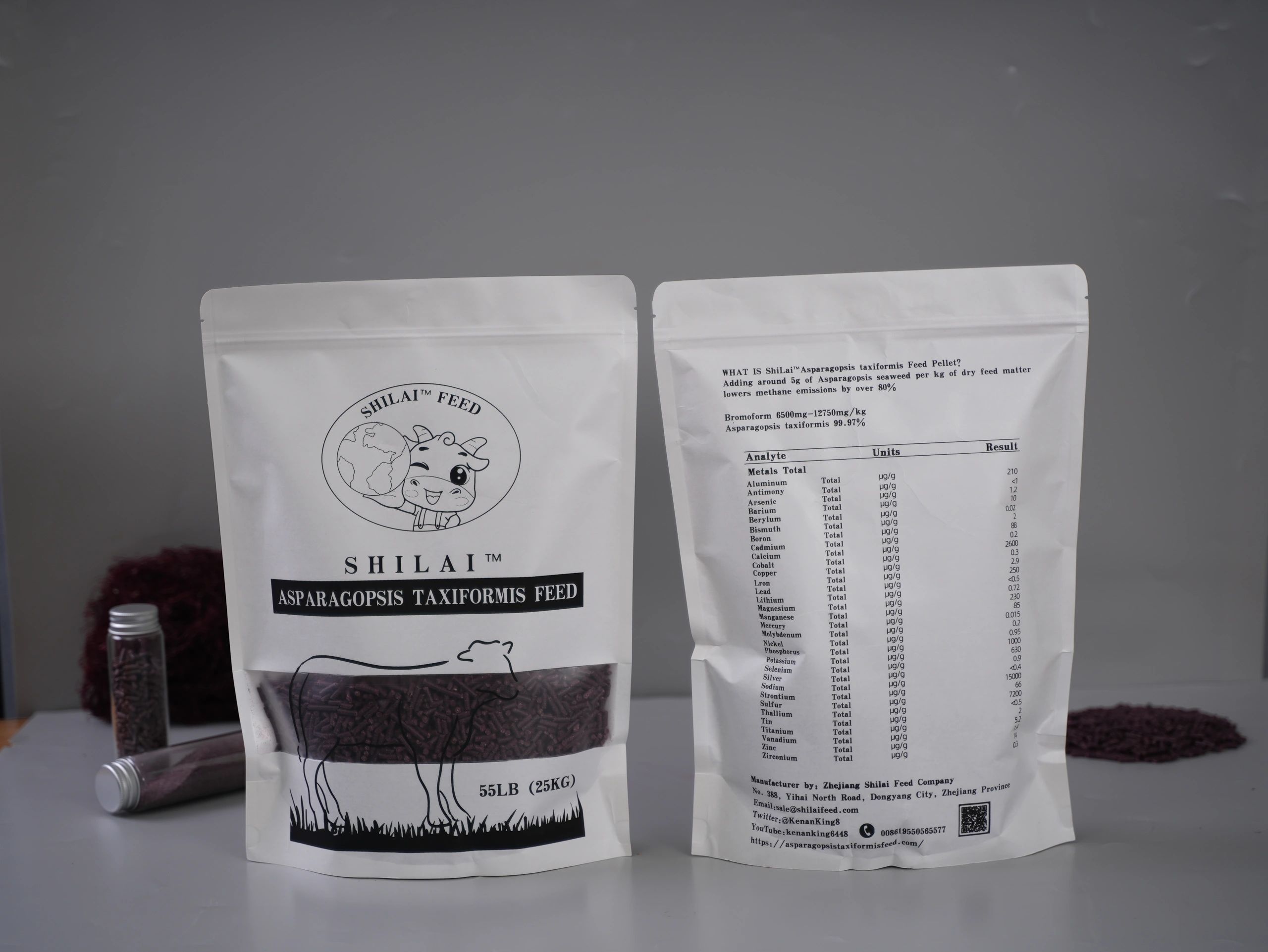The global agricultural sector is a major source of greenhouse gas emissions, especially from livestock farming.
Due to its much greater warming potential relative to carbon dioxide, methane emissions are a high-priority target for mitigation.
Evidence suggests Asparagopsis taxiformis, a red marine plant, could offer a promising route to curtail methane from animal agriculture.
Contained within the alga is a bioactive molecule that suppresses methanogenesis in the rumen and reduces total methane emissions.
Mixing Asparagopsis taxiformis into diets has returned positive early-stage evidence for cutting methane from ruminant animals.
- The seaweed further supplies a set of advantageous outcomes that extend past methane mitigation.
- Stronger digestive performance in animals
- Prospects for sustainable blue-economy enterprises and added rural income
Although additional studies and scale-up work are required, Asparagopsis taxiformis holds strong potential as a durable means to cut livestock emissions.
Exploring the Commercial Promise of Asparagopsis taxiformis Powder as a Feed Ingredient
The powder and extract forms of Asparagopsis taxiformis could deliver new nutritional and environmental value in feeds.
The seaweed’s composition includes valuable nutrients and active molecules that can improve productivity metrics.
Formulating with A. taxiformis powder has lowered methane in studies and can provide additional vitamins and minerals to animals.
Ongoing research must address effective dosing strategies, production processes, and chronic safety/effectiveness considerations.
The Promise of Asparagopsis taxiformis for Greener Animal Agriculture
The species is increasingly seen as an intervention to lessen the environmental footprint of conventional livestock production.
Using the algae as a feed ingredient offers a pathway for farmers to reduce methane and improve the environmental profile of production.
Research suggests the seaweed can additionally support better animal health and production performance under certain conditions.
Large-scale implementation and chronic impact assessment remain to be proven, yet preliminary results are highly encouraging.
Methane Reduction Through Asparagopsis Feed Additive

Research highlights Asparagopsis as a potential, effective way to minimize methane from ruminant animals.
The reduction results from interference with methanogenic archaea in the rumen caused by the seaweed’s constituents.
- Several studies have documented considerable methane reductions in ruminants receiving Asparagopsis in feed.
- Incorporating Asparagopsis into rations is an environmentally sound method for methane abatement.
- Agricultural stakeholders are evaluating the practical adoption of Asparagopsis within farm feed programs.
Asparagopsis: Revolutionizing Methane Management in Livestock Farming
Seaweed-based innovation, exemplified by Asparagopsis taxiformis, is showing potential to lower enteric methane at scale.
- Feeding trials with Asparagopsis demonstrated substantial methane declines, supporting its environmental promise.
- This breakthrough could help reconcile food production with sustainability by lowering emissions while supporting nutrition needs.
As decarbonization efforts accelerate, Asparagopsis represents a distinctive marine-based pathway to reduce agricultural methane.
Maximizing the Methane-Reduction Potential of Asparagopsis taxiformis Feed Products
Work is underway to determine optimal processing methods and inclusion rates to enhance A. taxiformis effectiveness.
The Science Behind Asparagopsis taxiformis's Methane-Lowering Effects
Research explains the effect as chemical interference with rumen methanogens, reducing methane synthesis during digestion.
A key active molecule, bromoform, is implicated in inhibiting methanogenesis, though research continues into alternatives and safety profiles.
Blending Asparagopsis into Diets for More Sustainable Farming
The alga’s nutrient composition plus its methane-mitigating constituents support its potential as a feed ingredient.
Including the seaweed in formulations can supply proteins and trace elements, support digestive health, and contribute antimicrobial effects.
A Greener Food Future with Asparagopsis taxiformis
The seaweed is positioned as an innovative, nature-based measure to tackle emissions and improve the sustainability of food supply chains.
- Moreover, the species supplies nutrients that can enhance the dietary profile of feed formulations.
- Experts across sectors are mobilizing to research Asparagopsis applications in both marine and land-based food systems.
Bringing Asparagopsis into routine practices has the potential to reduce emissions associated with animal production.
How Asparagopsis Feed Additives Can Improve Animal Health and Performance
Asparagopsis is increasingly recognized as a promising feed supplement that may improve both animal health and productivity.
Findings indicate the seaweed may improve digestive efficiency and feed conversion, positively affecting growth metrics.
The seaweed’s bioactives may provide antioxidant and immune-support effects that support animal robustness and disease resistance.

Increasing focus on sustainable production makes Asparagopsis a compelling candidate as evidence and supply chains mature.
Methane-Cut Feed with Asparagopsis: Towards a Carbon Neutral Future
Facing intensifying expectations to curb emissions, farming may turn to Asparagopsis as part of its mitigation toolkit.
- Scientists believe the seaweed contains compounds that disrupt methanogenesis in the rumen, thereby lowering methane production.
- Experimental work has shown promising methane decreases associated with Asparagopsis supplementation in diets.
This feed innovation could help shift food production toward lower emissions and greater climate resilience.
